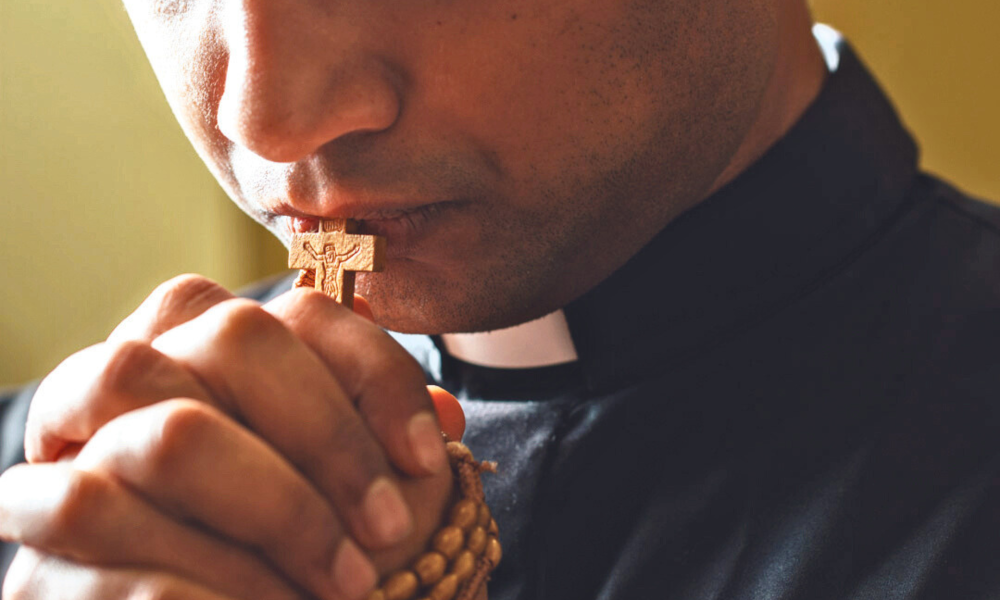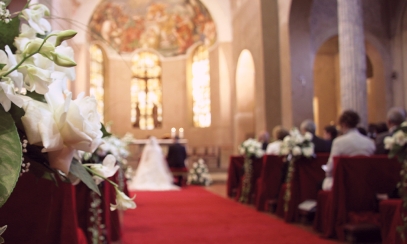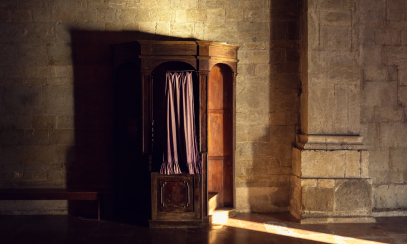
Serving in Christ: The Sacrament of Holy Orders
Marriage and holy orders are sacraments “directed towards the salvation of others” that “confer a particular mission in the Church and serve to build up the People of God.” (Catechism of the Catholic Church 1534)
Holy orders is the sacrament in which a bishop confers on a baptized man the grace of the Holy Spirit and sacred power for the service of the faithful. It is administered in three forms: deacon, priest and bishop.
Marriage and holy orders are sacraments “directed towards the salvation of others” that “confer a particular mission in the Church and serve to build up the People of God.” (Catechism of the Catholic Church 1534)
Holy orders is the sacrament in which a bishop confers on a baptized man the grace of the Holy Spirit and sacred power for the service of the faithful. It is administered in three forms: deacon, priest and bishop.
This is the eighth and final post in our series exploring the seven sacraments of the Catholic Church. Check out a brief overview of all seven sacraments here.
Why does the Catholic Church have holy orders?
Though Christ entrusted all of his followers to go out and proclaim the Good News, he specifically entrusted the Apostles to shepherd the people of God and carry on his authority after he ascended into heaven. (CCC 874-875) The fact that grace must be given – no one can grant themselves grace – assumes the need for ministers who are authorized and empowered by Christ to grant grace through the sacraments. These ministers are granted the sacred power to act in persona Christi (“in the person of Christ”) in Jesus’ stead on earth. (CCC 875)
Who can receive holy orders as a sacrament?
Only baptized men may seek ordination. Jesus chose the Twelve Apostles, all men, to succeed him in his ministry, and the apostles hand down Christ’s ministry with each ordination.
Only a bishop as the valid successor of Christ may ordain men to maintain apostolic succession.
What happens when someone receives holy orders?
Ordinations typically occur within the Mass, on a Sunday, and in a cathedral. All three ordinations follow the same form in that the bishop lays hands upon the man receiving the sacrament and prays the prayer of consecration “asking God for the outpouring of the Holy Spirit and his gifts proper to the ministry to which the candidate is being ordained.” (CCC 1573)
The biblical basis for holy orders
Because holy orders are administered in three forms, holy orders can be found in three different passages for each level.
Deacon in 1 Timothy 3:8a-9,13: “Similarly, deacons must be dignified, not deceitful, not addicted to drink, not greedy for sordid gain, holding fast to the mystery of the faith with a clear conscience. Thus those who serve well as deacons gain good standing and much confidence in their faith in Christ Jesus.”
Priest in Acts 14:23: “They appointed presbyters for them in each church and, with prayer and fasting, commended them to the Lord in whom they had put their faith.”
Bishop in Titus 1:7a-8, 9a: “For a bishop as God’s steward must be blameless, not arrogant, not irritable, not a drunkard, not aggressive, not greedy for sordid gain, but hospitable, a lover of goodness, temperate, just, holy, and self-controlled, holding fast to the true message as taught so that he will be able both to exhort with sound doctrine and to refute opponents.”



